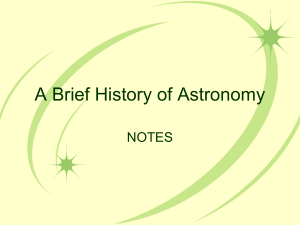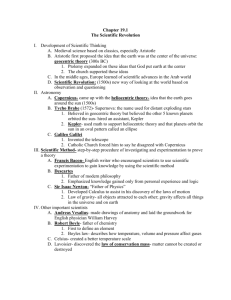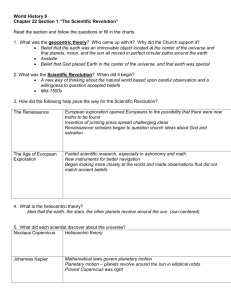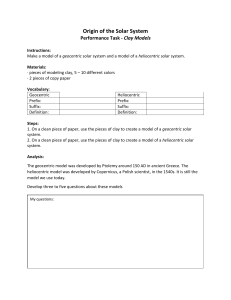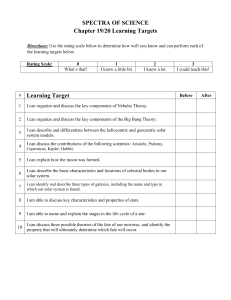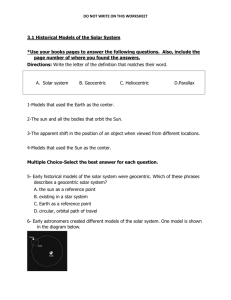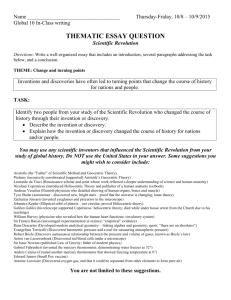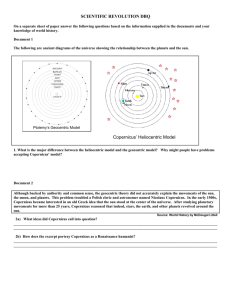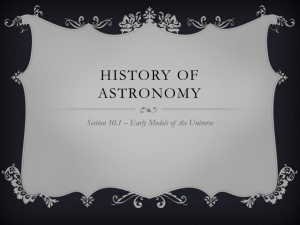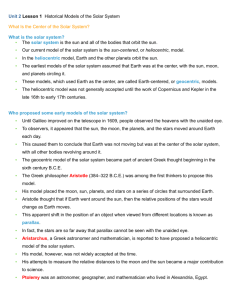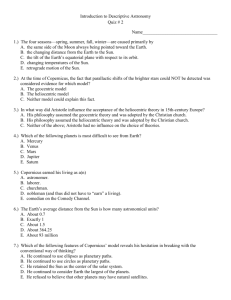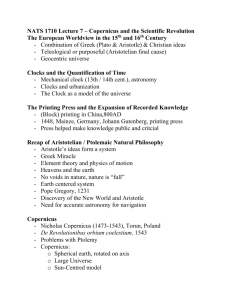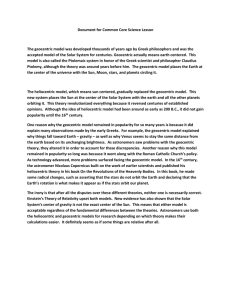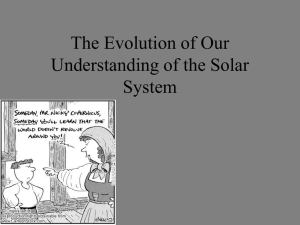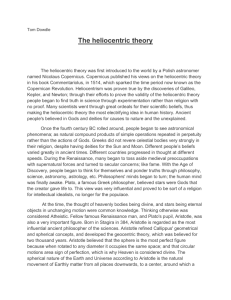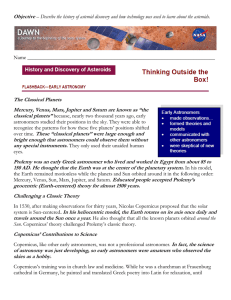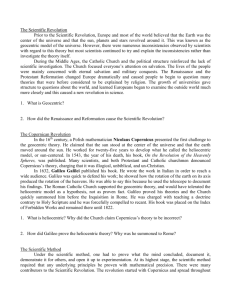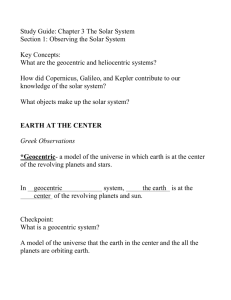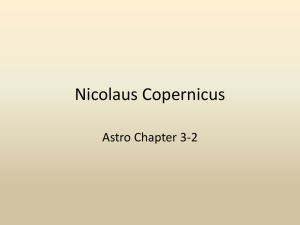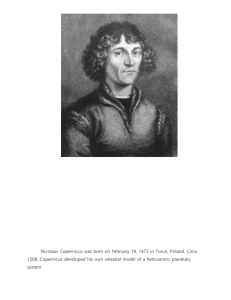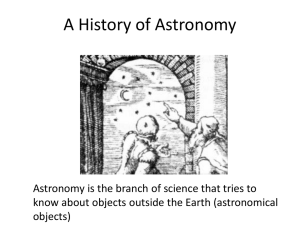Heliocentric Model
advertisement
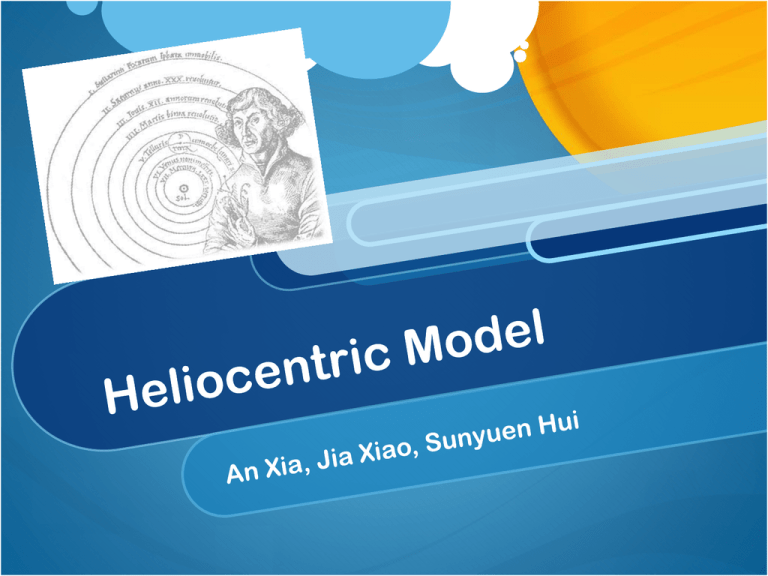
What people believed before 16th century. Long time before 16th century, most of people in the world thought earth was the center of the universe. Other planets, such as sun and other stars, orbit around the Earth. This is called Geocentric Model, developed by a Greek philosopher, Claudius Ptolem. Geocentric Model Supported by: At that time, the Geocentric Model was supported by two common notions. First, people saw the saw the Sun rising from the east of earth and went down from the west of earth. So did the moon. People simply thought the Sun and the Moon orbited around the Earth. Second, people standing on the earth thought the earth was stable and not moving at all. According to these two common ideas, people believed in and supported the Geocentric Model. Opposed by: At the same time, the Geocentric Model and Ptolemaic system were opposed by some scientists. They thought the Earth was not the center of the Universe, but the Sun. In fact, Earth is moving every second. Their thoughts ware supported by Copernicus’s heliocentric model. Proof of Sun-centered system Copernicus states that the sun is the center of the solar system. He demonstrated that it is almost impossible to explain the paths of the planets across the sky with the earth-centered solar system. Planets often changed their directions or disappeared. However if the sun is placed in the center of the solar system, which the earth and all other planets moving around the sun at different distances from the sun, the observed paths can be explained with simple mathematics. Heliocentric Model The order of solar system Copernicus also announced the order of the planets around the sun is Mercury, Venus, Earth and Moon, Mars, Jupiter, Saturn, and the fixed stars. Why people won’t fall off from Earth!!! Another important explanation or proof of suncentered solar system is that even though the Earth is moving around the sun, we do not fall off from the earth since human beings also rotate with the same speed of the Earth’s natural rotation around the sun. Development After Nicolaus Copernicus, heliocentrism has been further developed by Johannes Kepler, Galileo Galilei, and Sir Isaac Newton, eventually resulted in the suspension of the Catholic Church's bans on works that support the heliocentric model in 1757. Impact Copernicus's heliocentrism has a remarkable impact on the Catholic Church, where used to be the grave for innovations of science. As the heliocentric model was proven right and gradually accepted by the public, the church lost its control over much of the community, specially the scientific field. In other words, he showed people the possibilities that religion could be wrong about certain truths of our world and encouraged them to rediscover it in new ways. Contribution It is so hard to ignore the importance of Copernicus’s work. By placing the Sun at the center of the Solar System instead of the Earth, he challenged people's common perception, resisted the Church doctrine, and motivated a science revolution, providing the world filled with God, nature and superstition with a sobering view of the real relationship between the universe and human beings. In All, Copernicus's heliocentric theory not only contributes to the science world but also has a significant influence on society and human development. Citation: http://www.universetoday.com/32607/geocentric-model/ http://csep10.phys.utk.edu/astr161/lect/retrograde/aristotle.html http://www.astronomyfactbook.com/timelines/heliocentrism.htm http://www.brighthub.com/science/space/articles/38147.aspx http://abyss.uoregon.edu/~js/ast123/lectures/lec02.html http://physics.ucr.edu/~wudka/Physics7/Notes_www/node41.html http://www.bluffton.edu/~bergerd/NSC_111/science3.html http://physics.ucr.edu/~wudka/Physics7/Notes_www/node41.html Thank you!!!
